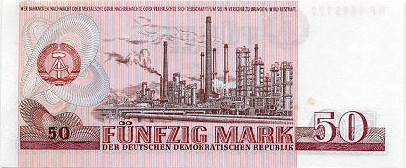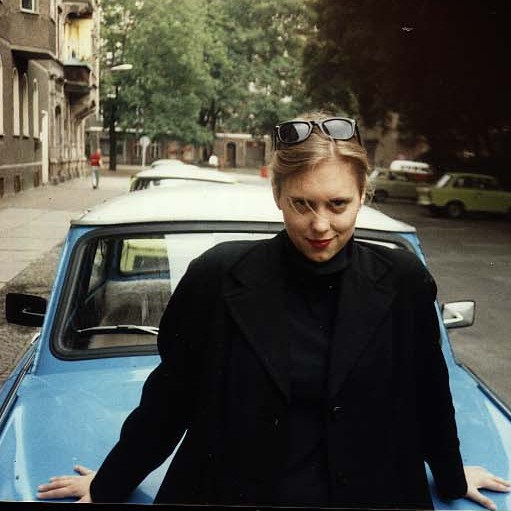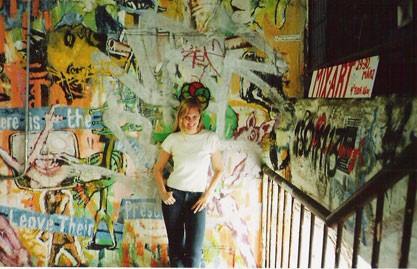I met other East Berliners through my journalistic work, like a man whose name I have since forgotten who had been assigned to be the first rabbi in East Berlin since the war.
He was a pleasant elderly gentleman, a holocaust survivor, who had a hard time persuading the small congregation to trust him. Many had lived through two regimes highly hostile to Jews, and they refused to do things like leave the door to the temple open during services. They hadn't asked for a rabbi, and didn't seem to think they needed one.
Other than that, he liked Germany, as did a Russian Jew I met at one point in East Berlin. He'd been allowed to emigrate from Russia to Isreal, but found Germany more to his taste. I said that seemed ironic.
"Not really," he said. "In Russia, all the best
people, all the intellecuals, were Jewish. In Israel, everybody was Jewish - the cops were
Jewish, the hookers were Jewish, everybody."
"I like it better when there's just a few of us."


